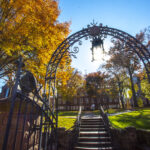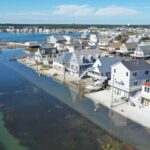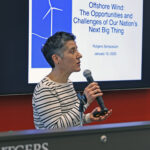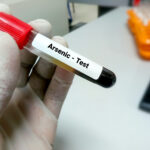SEBS faculty are involved in three out of these four cross school collaborations, interdisciplinary projects chosen to foster innovative research benefiting the public and addressing pressing global issues. Rutgers University–New Brunswick has selected four submissions to the Chancellor-Provost Challenge: Toward the Common Good, which invited innovative proposals from the Rutgers community for transformational, campus-wide initiatives to help fulfill […]
Rutgers Students Work to Bring Wind Energy to New Jersey
This September, Gov. Phil Murphy signed an order to increase New Jersey’s offshore wind goal to nearly 50 percent by 2040. A group of 12 Rutgers students is hard at work to help the state meet that deadline. They are part of the inaugural cohort of the Wind Institute Fellowship Program: a pilot launched last […]
Preserving the High Seas and the Life Within
Rutgers professor participating in historic ocean treaty negotiations predicts it will increase ocean resilience to climate change Climate change. Overfishing. Seabed floor mining. These are some of the epic challenges that would be addressed by a historic United Nations treaty protecting ocean biodiversity that gained backing in early March when a significant majority of nations […]
“Fields of Devotion” Wins Best Short Documentary at Garden State Film Festival
On March 26, Fields of Devotion was shown to a packed house and won the Best Short Documentary Award at the 2023 Garden State Film Festival. This is the second award for the film, which was awarded Best Climate Film by the New York Science and Nature Feedback Film and Screenplay Festival in late 2022. In attendance at the Garden State Film Festival’s […]
Rising Waters on Our Coasts and What It Means for Public Access?
New Jersey law ensures the public’s right to access coastal shorelines and waters. To help people know where to access tidal waterways and get information about the amenities at each location, the state has an online map that shows over 3,900 public access points. However, the impacts of climate change are likely to affect public […]
Rutgers Hosts 2023 World Food Prize New Jersey Youth Institute
High school students participate in global fight against hunger The New Jersey Youth Institute (NJYI), hosted by the School of Environmental and Biological Sciences (SEBS), is a transformative experience for high school students. Rutgers welcomed 177 students, 21 teachers/mentors, and 28 expert judges comprised of Rutgers staff, faculty and industry professionals to the Douglass […]
Microscopic Chalk Discs in Oceans Play Key Role in Carbon Cycle by Propagating Viruses
Rutgers-led research finds biomineral structures formed by marine algae foment viral infection, contributing positively to capture CO2 A Rutgers-led team of scientists studying virus-host interactions of a globally abundant, armor-plated marine algae, Emiliania huxleyi, has found that the circular, chalk plates the algae produce can act as catalysts for viral infection, which has vast consequences for […]
Award-winning Film Highlights Rutgers Efforts to Protect Basil from Blight
Fields of Devotion provides a window into the science behind developing disease- and climate change-resistant food crops When a devastating disease wiped out New Jersey farmers’ basil fields, growers turned to Rutgers scientists for help. Now the public will be able to follow the unique partnership between local farmers and Rutgers scientists in Fields of Devotion, […]
Rutgers Powers Up for Offshore Wind Energy Research
Rutgers researchers recently shared their expertise in offshore wind energy with each other and those expected to play a key role in New Jersey’s effort to help the nation fight global warming by shifting to offshore wind energy. “We’re well positioned to support needs of the offshore wind industry,” said Denise Hien, vice provost for […]
SEBS Researcher Creates Algorithms to Predict Arsenic Contamination in Private Wells in New Jersey
Software uses machine learning to detect “hot spots” in three west-central counties Despite the risks to human health, testing for arsenic isn’t required for most private drinking wells in New Jersey. To help address this regulatory gap, a Rutgers researcher developed a machine learning model that can estimate arsenic contamination in private wells without the […]











